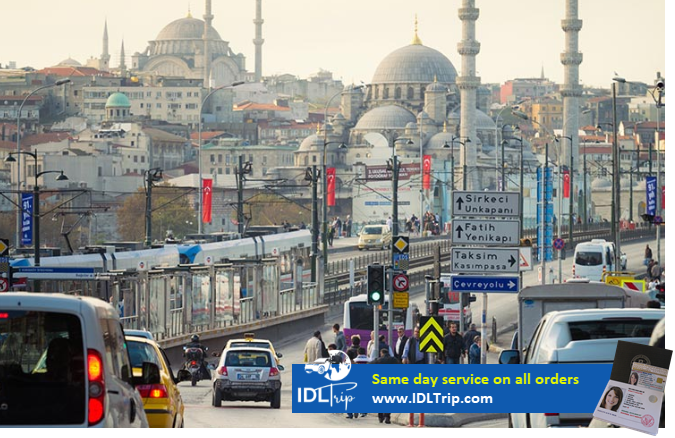Tips for driving in Turkey
Turkey is where Eastern and Western cultures come together, resulting in a fantastic mix of traditions and festivities. Not only that, Turkey is a diverse country, with spectacular mountain ranges, golden beaches, cities with wonderful sightseeing opportunities, and idyllic rural towns to explore. This diversity can only be truly explored by the independent traveler, and driving is a great way to do so.
Driving in Turkey is a great way to see the country. Driving in Turkey is not very different from driving in any other European country. Driving in Turkey is easy, especially compared to driving in Mexico or even Morocco. Roads are good, signage is clear, parking is easy, and navigation is simple. However, there are some important points to consider before embarking on a journey.

Roads in Turkey
First of all, there are paths to think about. The main roads, such as the route between Ankara and Istanbul, are excellent, although they tend to be only two lanes, often causing foreign tourists some concern.
On quieter country roads, it is very unusual to see heavy vehicles, making them ideal for the tourist. Driving on these rough roads is not only fun, but it is here that you will find the most picturesque towns, few of them frequented by mass tourism. Here you can find the real Turkish life, and all visitors are welcome.
Most of the roads in Turkey, whether in urban or rural regions, are in fairly good condition, although you should be careful of landslides and rockfalls that can occur in eastern Anatolia after snowy winters. Keep in mind that traffic jams are quite frequent on the outskirts of big cities; Istanbul, in particular, is famous for its bottlenecks. For short daily trips, using the public transport network can often be faster.
Driving license in Turkey
A driver's license (surucu ehliyet) issued in your home country will allow you to drive within Turkey for your first 2 months in the country. Afterwards, you will simply be asked for a notarized international driver's license translation of your driver's license, without the need for a driving test. (www.idltrip.com )
After a year of stay, you will be required to convert your foreign license to a Turkish one, which will also allow you to benefit from cheaper car insurance premiums. The driving test is only required if you apply for your first driver's license. Turkish licenses are compatible with the European Union.

Car rental with
Renting a car in Turkey is no different from renting a car in most other countries, especially if you use an international rental company.
If you decide to rent a car, there are a few things to keep in mind.
- Keep an eye out for every car you come across, you have no idea what they could do and you have to be prepared for any possibility
- Don't drive at night. It's too dangerous.
- Try to avoid driving during rush hour. Simple trips of a few kilometers can take several hours in traffic
- Don't get too excited about the anger of some motorists. 'Road Rage' is a way of life in Turkey - Keep it 'Water off a Duck's Back'
- Be prepared for police stops. (Remember, you must carry your passport and international driver's license with you at all times as a foreigner.)
- Expect the police to be biased against you if you're involved in an accident
- You've had a license in a major country (anywhere with an international airport) for at least a year, you should be able to rent a car in Turkey for a few months. However, after three months, you will need an international driving permit. Check with your rental car provider for specific details.
Speed limits
The speed limit on most roads in Turkey is 90 km/h. In cities and on some rural roads, the speed limit is usually 50 km/h. However, a warning is necessary. Although speeding laws exist, and severe penalties can be imposed if detected, it is almost certain that you will find yourself driving over the speed limit. Local people in cities, on country lanes and on highways tend to go as fast as they can!
Turkish customs and driving habits
When driving on the right, as most European countries do, it is frowned upon and illegal to drive on the right. In Turkey, this rule is the most ostentatious. In contrast to stopping and stopping suddenly, drivers are also likely to change lanes without warning. Taxis and minibuses are notorious in Turkey for changing lanes without warning.
For some reason, drivers in Turkey don't mind stopping at unexpected places. Perhaps to pick up or drop off a passenger, or just stop for a bite to eat, drivers may stop suddenly without indicating their intentions. This happens a lot in towns and cities, but it's not uncommon for this to happen on major roads and even highways.
Finally, pay special attention to intersections. Major roads will always have right of way, but often these junctions are not marked with stop or yield signs. The best tactic here is caution.
As in any country, driving in Turkey can be dangerous. However, with a little preparation and a lot of care and attention to other road users, driving in this beautiful country can be rewarding and a lot of fun. The most stressful journey will usually be rewarded as you turn a corner on a country road, only to find the most picturesque town you've ever seen. And the hospitality offered by the locals will surely ensure that the stress of driving is completely forgotten.
